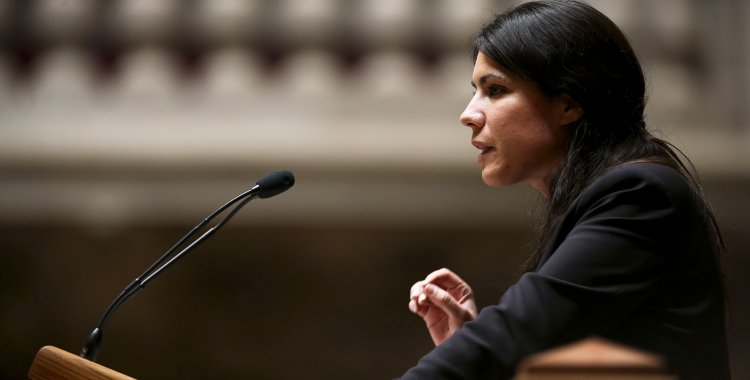Right after the Portuguese Secretary of State for Justice, Mário Belo Morgado, presented in plenary the draft law transposing the European directives on measures to prevent and combat money laundering and terrorist financing, Duarte Alves (PCP) was responsible for presenting two draft laws, one of which excluded entities based in tax havens from any public support to the economy.
The other draft law of the CFP aims to establish measures to strengthen the fight against economic and financial crime by prohibiting or limiting commercial or professional relations or occasional transactions with entities based in non-cooperative offshore centres.
The ENP, through José Luís Ferreira, also presented a draft law aimed at excluding companies based in tax havens from the support lines under the covid-19 pandemic.
During the discussion of the proposals, the Portuguese Member of Parliament Mariana Mortágua (BE) criticised the Government's delay in adopting the directives and claimed that it was the Luanda Leaks scandal that accelerated the whole process of transposition, which, at the end of the debate, led the Portuguese Secretary of State for Tax Affairs, António Mendes, to contradict such a reading, with data on the drafting of the law.
Having expressed BE's will to discuss the diplomas in the specialty, Mariana Mortágua defended that, in financial matters, "there is information that cannot remain in the secret of the gods", namely about the ultimate beneficiaries of corporate companies, but that this requires "political will to face economic, financial and political interests".
"It wasn't just Isabel dos Santos who laundered money in Portugal. All the Angolan kleptocracy laundered money in Portugal," accused Mariana Mortágua, criticising the political behaviour of former ministers Rui Machete and Paulo Portas in the course of the trial in which Manuel Vicente (former Angolan vice-president of Sonangol) was accused in Portugal and which caused diplomatic tensions between Angola and Portugal.
According to the deputy, Angolan money laundering "was happening in everyone's beard and everyone knew that there were banks that were used to launder the money of Angola's elite", and this knowledge was also known to the Bank of Portugal.
She also said that in order to "put an end to the hypocrisy of money laundering" it is also necessary to talk about Gold Visas, which can act as a "door" to money laundering.
The same concern about Gold Visas was expressed by Representative André Silva (PAN), who demanded greater rigour in the analysis of the origin of the capital invested through this residence mechanism.
Despite the fact that all sides welcomed the fact that the government decree, resulting from two European directives, extended the fight against money laundering to cryptomorons and virtual payment mechanisms, many criticisms were levelled at the delay, lack of means in criminal investigation, inability and lack of political will to combat money laundering and tax evasion in tax havens and in countries that practise tax dumping'.
According to Duarte Alves, the government diploma "is yet another transposition that seeks to disguise the European Union's inability to combat money laundering and scandals like that of Panama Papers". He added that "declarations of intent are not enough to put an end to tax havens," and concrete measures must be taken to "prevent the bleeding of public resources" through such tax schemes.
José Luis Ferreira (ENP) said that the Parliament "should not allow such companies to receive state support", underlining that tax havens bring "poverty, inequality and weaken the financial base of the state".
Mónica Quintela (PSD) and Telmo Correia (CDS/PP) criticised the government for the delay in transposing the directives into national legislation and stressed that there is no point in having legislation if then there are no means to carry out criminal investigations and other steps to combat laundering.







